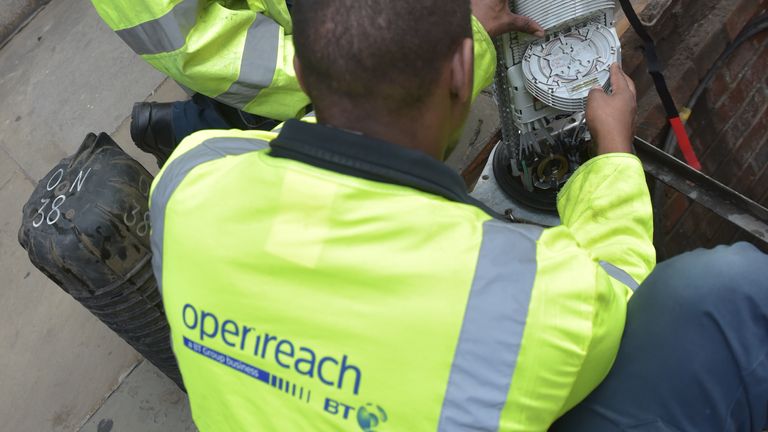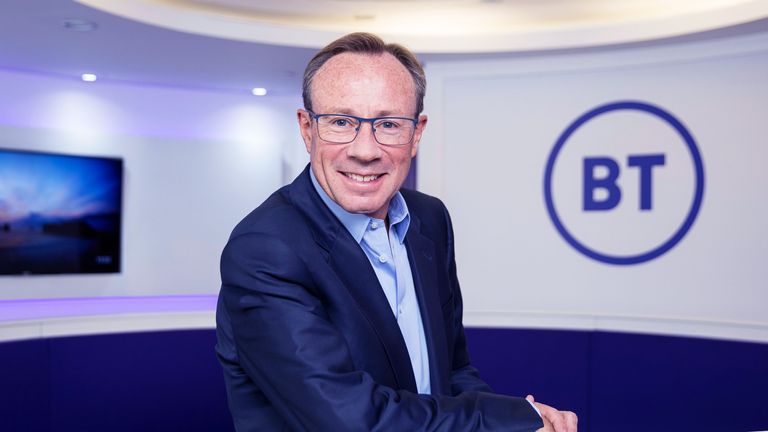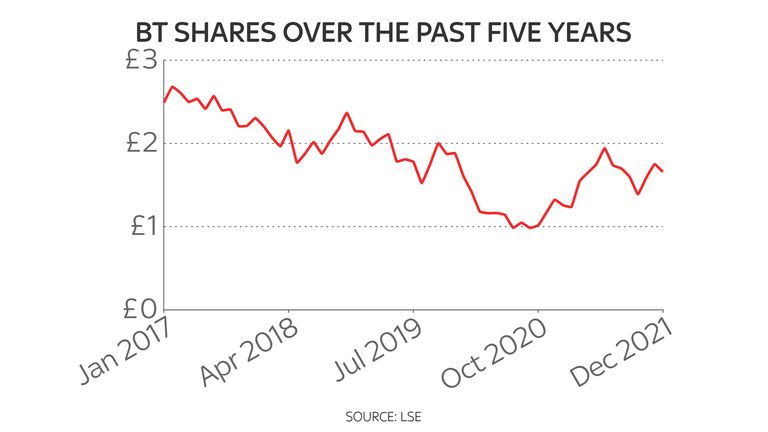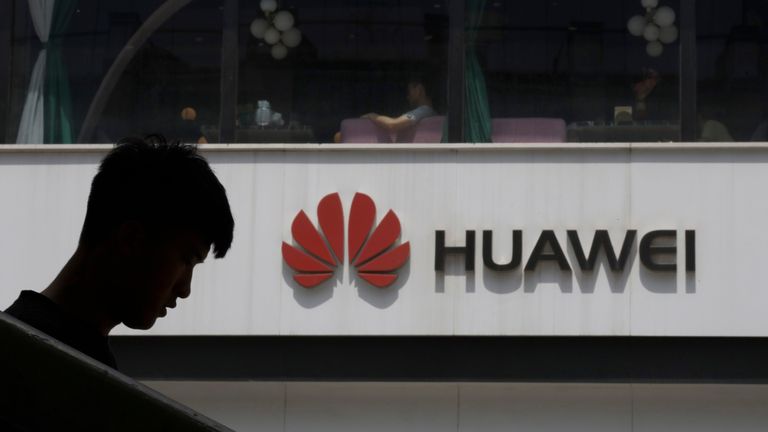Why Whitehall is listening in carefully as BT's biggest investor builds his stake
Sky's Ian King says we are no closer to discovering the intentions of Patrick Drahi as the government fires a warning shot across the bows on the prospect of any takeover approach.
Tuesday 14 December 2021 12:57, UK
Ever since the Franco-Israeli billionaire Patrick Drahi declared in June that he had bought a 12.1% stake in BT to become the company's biggest shareholder, there has been intense speculation about what he would do next.
At the time, Altice - Mr Drahi's company and the second biggest telecoms operator in France after Orange, the rechristened France Telecom - said it had no plans to bid for BT.
Under the UK's takeover rules, that barred Altice from bidding for BT for six months, a ban which was lifted on Tuesday.
But anyone familiar with Mr Drahi and his career knew he was unlikely to be sitting on his hands.
As Tim Hoettges, chief executive of BT's second largest shareholder Deutsche Telekom, put it in August: "I think we will see an exciting quarter four with regard to this shareholding."
Today he and everyone else was left a little clearer as Altice announced it had raised its stake in BT to 18% - but reiterated it had no intention of making a takeover approach.
That rules out the possibility of Mr Drahi launching a takeover until June next year unless one emerges from a third party or unless an agreement for one can be reached with the BT board.
Strikingly, Altice is yet to ask for representation on BT's board, which, under normal circumstances, it would be entitled to request. That implies the relationship between Altice and BT's board, led by its Adam Crozier, the new chairman and Philip Jansen, the chief executive, remains cordial.
The company said: "Over recent months we have engaged constructively with the board and management of BT and look forward to continuing that dialogue.
"We continue to hold them in high regard and remain fully supportive of their strategy, principally to play the pivotal role in delivering the expansion of access to a full fibre broadband network - an investment programme which is so important to both BT and to the UK."
BT responded: "The board of BT Group has been notified that Altice UK has increased its interest in BT Group's voting share capital from 12.1% to 18.0%.
"The board and management of BT Group will continue to operate the business in the interest of all shareholders and remains focussed on the successful execution of its strategy and building on recent performance momentum."
It has been reported that Altice topped up its shareholding in BT by buying shares in the open market rather than from Deutsche Telekom. It means that two shareholders - Altice and Deutsche Telekom - together now own 30.06% of BT.
Were they to pool that stake, they would be required to make an automatic offer to other shareholders.
Shares of BT fell by as much as 7% at one point on Tuesday as Mr Drahi's latest pronouncement killed hopes of an immediate takeover bid.
The decline also reflects the fact that the UK government is watching BT closely.
A spokesman said: "The government notes the latest acquisition of BT shares by Altice. We are monitoring the situation carefully.
"The government is committed to levelling up the country through digital infrastructure, and will not hesitate to act if required to protect our critical national telecoms infrastructure."
Nadine Dorries, the Secretary of State for Digital, Culture, Media and Sport, met Mr Crozier and Mr Jansen on Monday.
It is understood that, last night, Mr Drahi called Mr Crozier - a former chief executive of ITV, Royal Mail, the Football Association and the advertising agency Saatchi & Saatchi - to notify him of his increased shareholding.
So what happens next?
Well, subject to those caveats outlined above, nothing during the next six months.
But the government has been dropping increasing hints that it is likely to intervene in the event of a takeover bid for BT.
The new National Security & Investment Act, which comes into force on 4 January, means that companies in 17 sectors, including graphene, robotics, artificial intelligence and nanotechnology, will be required to notify ministers about any foreign investments or takeovers.
The act also allows the government to call in any deals regarded as raising a "national security risk".
However, even before the passing of this act, the government had indicated it was going to take a more interventionist approach.
There was widespread unhappiness when, in 2016, the UK's flagship tech company, the chip designer Arm Holdings, was bought for £25bn by the Japanese tech investor Softbank - a deal waved through by Theresa May's government in a bid to show that, in the immediate aftermath of the Brexit vote, Britain remained open for business.
But two other developments persuaded ministers to take a tougher approach.
The first was unease among the security services at some overseas investment in national infrastructure, most notably the involvement of the Chinese telecoms equipment supplier Huawei in 5G roll-out, as well as a realisation that the UK's takeover regime was less robust on the issue of national security than most other major economies.
The passing of the act and the government's increasingly strident tone on the issue of BT in particular has persuaded some analysts that any bid from Altice for BT would probably be blocked.
Nor in any case is it clear that Mr Drahi is interested in an outright takeover of BT.
Analysts have speculated that his ultimate goal is for BT to demerge Openreach, owner of the company's broadband and fixed line networks, in order to achieve a higher stock market rating for it.
Meanwhile, Deutsche Telekom is watching closely, Mr Hoettges having suggested as long ago as August that the company was "a little bit kingmaker here".
Last month, in his most recent statement on the matter, Mr Hoettges told analysts: "I cannot speculate on Patrick Drahi's intention here in this environment. He has a standstill until the 10th of December. So we are very close to this one, and then we will see. We keep all options open in this regard.
"It's good to have that stake in this dynamic environment. But please understand that I cannot speculate around, let's say, opening up our hands here to show the market where we are heading to and then suddenly something else is happening.
"I think we are - it's wise for you as a shareholder of Deutsche Telecom - that we are not discussing too much about what we might do."
As for BT itself, it has been intensifying the speed of full fibre rollout, while its latest results last month pointed to an improvement in its operating performance.
That is something all investors, not just Mr Drahi and Mr Hoettges, will want to see continue.








